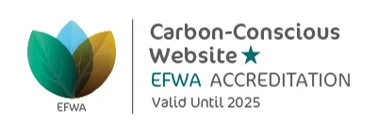Intro
Most businesses want their websites to be found easily by potential customers/clients/donors/investors etc and they want these visitors to have a good experience while using their site. Of course, there are many factors that will affect how easily a website can be found and how easily a website can be used.
This post looks at some changes that can be made to improve both search engine visibility and usability to help a business gain more clients, sell more products etc.

Why
I am going to focus on some of the factors that can be measured and tracked, and I will use this website as an example of the sorts of improvements that can be made. In particular, I will show that we were able to make the site
- Faster. This is essential for visitors to have a good experience on website as visitors as generally not that patient and don’t want to wait for a page to load (see also Web performance)
- More secure. Significantly reduces the chance of content sent over the internet being intercepted or changed by malicious parties.
- Better optimised for search so the pages can be found more easily (see also Site Visibility)
- More accessible so people with a variety of disabilities (temporary or permanent) can use the site effectively (see also Accessibility)
- and make better use of modern best practices.
Any website will benefit from these sorts of changes to make the site better able to be found in the search engines and give the visitor a better experience.
How
This website was designed and built a few years ago now and ran on the popular content management system (CMS), WordPress. WordPress powers nearly 40% of all websites that use a CMS (January 2021) and it is rightfully popular and effective, which is why we originally chose it as the platform for this site. However, the internet and the software tools available are constantly evolving and today there are many more options than there were when we built the AttractMore site 4 years ago.
Having researched a number of options, we decided to move this site to a different platform as we felt that WordPress had too many features we were not going to use on a relatively small site like this one. We wanted something leaner, faster and simpler which was more appropriate for the nature of the website we were producing. I’m not going to go into the technical details of the changes we made but, rather, will show what we achieved.
Results
I’m going to show the before and after results with graphics from 2 different tools that we used to measure our progress. The tools aren’t perfect and achieving a score of 100% on performance, for instance, doesn’t mean its the fastest site on the internet, but it does mean that it’s in the top bracket.
The first test focuses on speed and security and these are the results with the old version of the site.

So, really our old site did not do that well on security despite being up to date with all software levels. The second F in the diagram says that the server is not responding as fast as it should when someone accesses a web page. The remainder of the factors are good though.

After the changes, we’re getting straight As - apart from Security when it’s A+ (it turns out that there is no such thing as A+ in any other category!) So a substantial improvement in security and speed. The security changes we made were fairly simple and the improved speed was partly moving to different hosting that was both faster and quite a lot more economical that the previous hosting.
The second set of tests cover performance (again) but also our other focus areas of accessibility, SEO and best practices. The graphic below shows the situation before we made changes and it’s really not bad at all with all factors gaining a score of over 90 out of 100. The final item in the diagram, PWA, is a method of improving performance that we were not using, hence it’s in grey.

After we made the changes to the site, we’re achieving 100 out of 100 across the board and we implemented a PWA as well for even better performance.

Conclusion
Excellent results can be obtained by making some effort to improve speed, accessibility, SEO, security and best practices. Some of the changes are quite straightforward and other require more effort but the goal should be continuous improvement rather than necessarily trying to achieve top scores all at once. The changes will improve the experience your visitors have on your site and will increase the likelihood of your site achieving better results in the search engines.
If you are interested in how your business website fares against these metrics, please let us know and we will test your site and provide you with the results (privately). There is no charge for this and, of course, no obligation.
